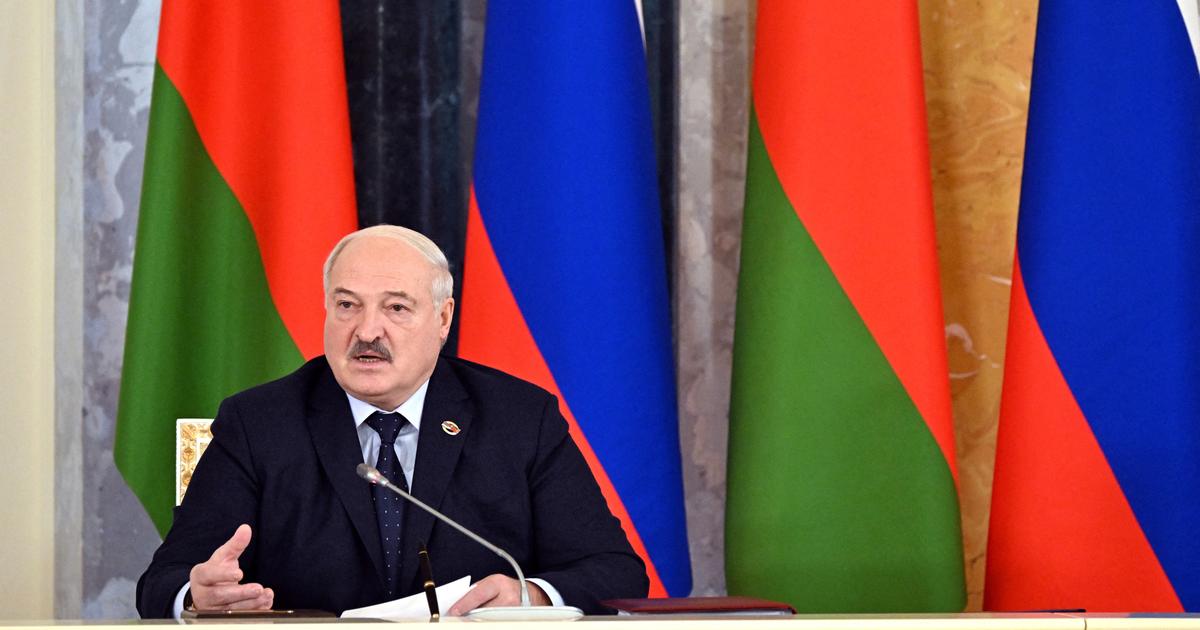The nuclear power should be sold to the Baltic States and Poland.
Nothing came of it.
Belarus is now trying to electrify important areas in order to use the electricity itself.
Ostrovets - The first reactors of the nuclear power plant in Ostrovets, Belarus, have hardly been completed when there is talk of a further construction.
Belarusian President Aleksandr Lukashenko announced at the end of 2020 that the country would like to expand nuclear power even further in order to phase out fossil fuels.
Ostrovets is less than 50 kilometers from the Lithuanian border and arouses fears among the Balts.
The plant with VVER 1200 MW pressurized water reactor units of the new Russian AES 2006 series went into operation in November 2020 despite Lithuanian safety concerns.
The incidents that have accompanied the construction of the nuclear power plant since 2013 were particularly worrying.
In the summer of 2016, the reactor housing fell onto the reactor floor.
Belarus' first nuclear power plant in Ostrovets: failed?
Lukashenko under pressure
The Russian company Rosatom was awarded the contract to build the nuclear power plant in 2011. Russia had offered a loan to finance the construction costs. The loan is to be refinanced with the income from the sale of electricity. In its publication published in February, the Heinrich Böll Foundation assumes that the Russians have approved around 90% of the costs, i.e. around 13-14 billion US dollars. In this case, the repayment would amount to 500 million US dollars a year, which Belarus will find difficult to achieve under the given circumstances.
When construction began, Lukashenko was planning to export cheap nuclear power to the Baltic States and Poland. However, the potential buyers showed no interest. Because, among other things, with a massive expansion of offshore wind energy, Poland and the Baltic states are trying to achieve their climate goals - and to gain more independence from Russia. Lithuania has even passed a law prohibiting the use of electrical energy from this nuclear power plant. From 2025 there will probably no longer be any technical means of supplying the Baltic States with electricity from Belarus, because the three EU states will leave the former Soviet BRELL system and be fully connected to the European grid.
(Hungary has been supplied with natural gas from Russia since 1995. A new contract has now been negotiated. Hungary has become considerably dependent on Gazprom.)
Even if the electricity exports cannot be implemented, Lukashenko hopes to be able to derive other advantages from the nuclear power plant in Ostrovets.
Belarus buys natural gas from Russia * in order to be able to secure its energy supply and energy-intensive industry.
This creates dependencies that intensify from price negotiation round to price negotiation round with the eastern neighbor.
Against the dependence on Russia - Belarus has particularly high consumption of natural gas
The Heinrich Böll Foundation assumes that Belarus has an annual consumption of 20 billion m3 of natural gas. This information is confirmed by the Polish energy expert and editor of the energy portal Biznesalert Mariusz Marszałkowski. Marszałkowski puts this consumption in relation to the number of inhabitants and emphasizes that Belarus has a particularly high consumption. “Annual gas consumption in Belarus, a country with just over 9 million inhabitants, is around 20 billion cubic meters. With its 38 million inhabitants, Poland consumes around 17 billion cubic meters of gas annually, ”writes Marszałkowski.
Lukashenko could reduce or limit this dependency with his own energy production. The country's annual electricity consumption is 36-37 TWh and Ostrovets can produce over 40% of this amount of electricity. That is why Belarus is trying to electrify as many areas as possible. This includes, for example, increased use of e-mobility and the promotion of electric heating.
Lukashenko has been following the regional model for e-mobility - the Ukraine - in promoting e-mobility since 2018.
Similar to the Ukraine, taxes on e-cars and the share of sales tax for charging electricity have also been abolished in Belarus.
But while the import of used e-cars is booming in Ukraine, Belarus is shying away from this specific step.
Domestic car production is initially limited to Chinese Zotye models Z 200 EV and Z 500 EV.
The electric buses are produced by the Belarusian vehicle manufacturer MAZ, which presented the 303E10 last year.
(Aleksandra Fedorska) * Merkur.de is an offer from IPPEN.MEDIA.







